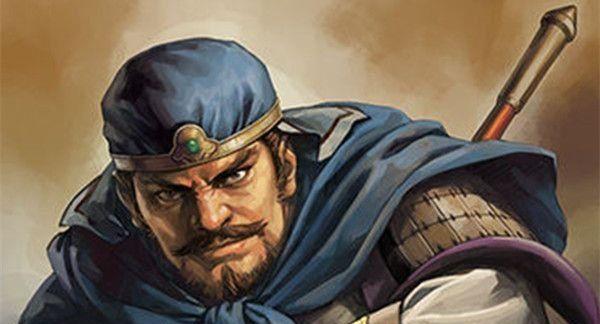During the Three Kingdoms period, there were many world-famous tiger fathers and tiger sons in Eastern Wu, and there were four pairs of the twelve tiger ministers in Jiangdong alone. This article combines historical records to make a brief introduction to these four pairs of fathers and sons.

The first pair of tiger fathers and tiger sons: Jiang Qin and Jiang Yi, they were from Shouchun County, Jiujiang County, which is now Shou County, Huainan City, Anhui Province. Jiang Qin was a veteran general among the Twelve Tiger Ministers, one of the main generals who followed Sun Ce in the early days, and successively served as a minister, a sima of the other departments, a county magistrate, a general of yuezhong lang, a general of Langkou, a general of Shushu, and a right protector. Jiang Qin had outstanding merits in his life, and in the process of quelling the four counties of Jiangdong, suppressing the Rebellion of Pingshan Yue, and conquering Wei Shu, he was a veritable wise and courageous general.
Although he was highly powerful, Jiang Qin was bent on serving the public and not seeking private interests, and always maintained a low-key and frugal style of life, and his behavior made Sun Quan very pleased, and Sun Quan was very attached and trusted to him. Jiang Qin's son, Jiang Yi, continued to serve eastern Wu after his father's death. Like his father, Jiang Yi bowed to eastern Wu, first making a military achievement against Liu Bei, and later tragically killed in battle with the Wei army in Nan Commandery.
The second pair of tiger fathers and sons: Zhou Tai and Zhou Shao, they were from Xiacai County, Jiujiang County, in present-day Fengtai County, Huainan City, Anhui Province. Zhou Tai was also a veteran of the Twelve Tiger Ministers, one of the main generals who followed Sun Ce in the early days, and successively served as sima of other departments, county magistrate, general of Pingyu, governor of Fengsu, taishou of Hanzhong, and general of Fenwei. Zhou Tai was brave and fierce, and his battle achievements were outstanding. He made great contributions to the neutrality of the internal rebellion and the defense against Cao Cao, and saved Sun Quan's life in his early years.
After Zhou Tai's death, his son Zhou Shao (周邵) commanded the army as a knight lieutenant on behalf of his father. During the war with Cao Wei, Zhou Shao was known for his bravery in battle, first fighting Cao Ren Jiangong at Fusu, and then severely injuring Cao Xiu at Shiting and then building meritorious service, and moving to general Pei. However, Zhou Shao's fate was not good, and when he was waiting for a grand plan, he died of illness in the second year of Huanglong (230 AD).
The third pair of tiger fathers and sons: Chen Wu and Chen Xiu, who came from Songzi County, Lujiang County, in present-day Huoqiu County, Lu'an City, Anhui Province. Chen Wu was one of the main generals who followed Sun Ce in his early years, and he was also the most tragic veteran of the Twelve Tiger Ministers, successively serving as Sima of the Other Departments, the Governor of the Five Schools, and the General of the Partial Army. Chen Wu made many achievements in pacifying Jiangdong, and finally spilled blood on the battlefield in the Battle of Hefei.
Chen Wu's eldest son, Chen Xiu, was very similar to Chen Wu, brave and fierce, courageous and fearless, and at the age of nineteen he was appointed as the Sima of the Other Department, and was later promoted to lieutenant because of his strong military management and the importance of Sun Quan. Chen Wu made many military achievements in his military career, and was hand-picked by Sun Quan as the supreme commander of the elite troops of Eastern Wu, the Xie Nu Soldiers. However, Chen Wu, like Zhou Shao,was waiting for a grand plan to develop his grand plan, and died of illness in the first year of Huanglong (229 AD).
The fourth pair of tiger fathers and tiger sons: Ling Cao and Ling Tong, they came from Yuhang County, Wu County, that is, Yuhang Town, Yuhang District, Hangzhou, Zhejiang Province. Ling Cao and Ling Tong are not only famous generals in the early days of Eastern Wu, but also the most representative pair of tiger fathers and tiger sons. Ling Cao was one of the main generals who followed Sun Ce in the early days, and he must be the vanguard in every battle, and he was a brave and fierce general who bravely championed the three armies. Ling Cao repeatedly built Qigong during the rebellion against Shanyue, was promoted by Sun Ce to lieutenant of the Thief School, and was unfortunately killed while pursuing Sun Quan to conquer Jiangxia.
Ling Cao's son Ling Tong, who ranked among the Twelve Tiger Ministers of Eastern Wu by virtue of his military achievements, was a well-known Xiao general in the early days of Eastern Wu. Ling Tong was fifteen years old when he served in the army, and successively served as Sima of other departments, lieutenant of the Thief, lieutenant of Chenglie, general of Lang Kou, and general of the partial general. Ling Tong's performance in the army is the same as that of his father, he is the vanguard in battle, brave to win the three armies, Xiao Yong is incomparable, and he is very much appreciated and valued by Sun Quan. However, Ling Tong's fate was tortuous, and he died young at a young age. After Ling Tong's death, Sun Quan was sad and sad, "reducing his diet for several days, and talking about runny nose."
Reference book: Romance of the Three Kingdoms